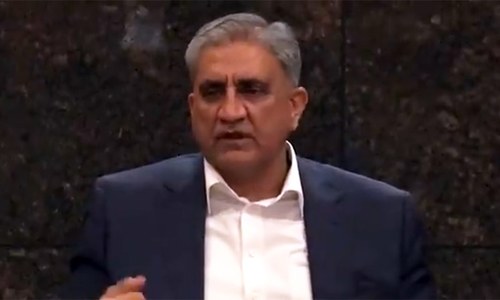The public is feeling the pinch of high inflation particularly because electricity and gas rates are at their peak. Traders are equally disturbed not only by the tax drive but also by the documentation challenge.
Businesses are feeling unease because of a high policy rate, soaring taxes and the expanding outreach of the anti-corruption watchdog that has crippled the bureaucracy and, as a result, the normal government functioning.
No government can remain comfortable amidst economic suffocation even if it limits the space for dissent and the opposition. Criticism then comes from within party members who face the rank and file at the grass-roots level. They have spoken out at different forums, including parliament, and in meetings with the prime minister.
No wonder then Prime Minister Imran Khan is coming under pressure from all sides to deliver now that he is into the second year of his rule. Pressure is mounting despite the fact that his government enjoys full support from the military establishment, which is rare for any political government. He has hinted at reshuffling his federal cabinet. This will be the second reshuffling since he came to power more than a year ago.
It was in this background that former finance minister Asad Umar jokingly told a parliamentary panel last week that all the ministers stared at him suspiciously whenever he entered parliament as if he was set to take away their cabinet portfolio.
Many economists believe that economic conditions require political engagement to ensure longstanding structural reforms
“You should yourself disclose the expected position to let all ministers relax except the one you are going to actually replace,” said another PTI member, Faiz Ullah.
The former finance minister had himself asked the prime minister in April to keep him out of the cabinet when he was replaced as finance minister by Dr Abdul Hafeez Shaikh. But he now appears to be willing. He told the media last week that the prime minister had hinted at his return to the cabinet.
After a party meeting presided over by the prime minister, the former finance minister said he had informed the premier that “I have ample time, but no work to do.” The prime minister said he would receive a new assignment soon, he added.
This was followed by speculations that the prime minister had envisaged a major cabinet reshuffle. Long lists of possible new entrants and dropouts were circulation. Mr Umar, however, said no specific change in the cabinet was announced by the prime minister.
A subsequent marathon interaction of business leaders with the army’s top brass reinforced the perception about the unease being felt by all segments of the population. The problem with the economic stabilisation is that it is always painful and results seldom follow quickly.
The combination of low growth and high inflation is painful and affects everyone. A projected economic growth rate of 2.4pc, when adjusted for population growth, actually comes down to 0.4pc in an economy that needs at least 7pc annual growth. A 12.5pc rate of inflation puts people in double jeopardy.
Independent economists agree that quick devaluation had resulted in imported inflation as the unit value of imports increased and affected real sectors. Repeated increases in energy prices added fuel to the fire while a high policy rate stifled investment prospects and multiplied public-sector debt.
Most of them agree that economic conditions require political engagement to secure longstanding structural reforms needed to steer the country out of difficulties. The perceived political vendetta on the other hand is creating a level of uncertainty that businesses and investors can hardly afford as economic indicators remain on the downside. Some of the major industrial units have reported closures and are scaling down operations. Many others are resorting to layoffs.
While these economic indicators remain poor, reforms in health, education and the governance structure have not come to fruition. Institutional reforms proposed by Dr Ishrat Husain still exist on paper as most of them require major legal changes.
As the political government struggles with these challenges, businessmen have been assured by the army chief that there would be a forum to first conclude whether a case should be taken up for investigation by the National Investigation Bureau (NAB).
Even before that, the relevant sector’s regulator should examine the case on merit and then refer the matter to the proposed forum to decide if NAB should actually launch formal investigations.
The economic team of the government remains adamant that its macroeconomic adjustment policies will lead towards higher and inclusive growth.
The government will do itself a favour if it moves swiftly to reforms relating to institutional and governance improvement, especially in areas like health, education, energy and state-owned enterprises. The economy needs some sort of stimulus and stability and can hardly afford further confrontation.
Published in Dawn, The Business and Finance Weekly, October 7th, 2019

















































Dear visitor, the comments section is undergoing an overhaul and will return soon.